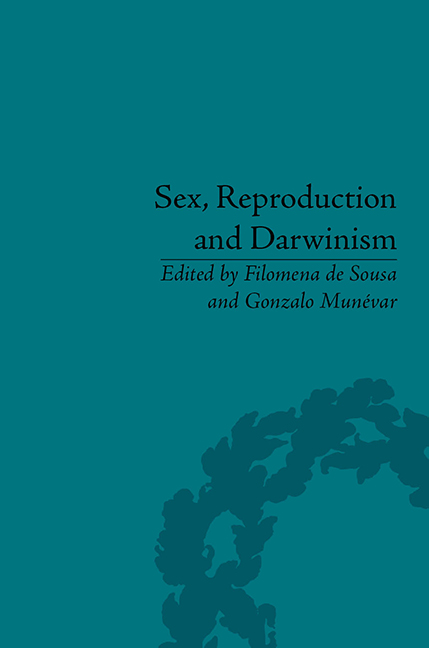Book contents
- Frontmatter
- CONTENTS
- Acknowledgements
- List of Contributors
- List of Figures and Tables
- Introduction
- Part I Reproduction, Mortality and Evolution
- Part II Reproduction without Sex?
- Part III Sex without Reproduction?
- Part IV Sexual Selection and Morality
- 8 Altruism and Sexual Selection
- 9 The Role of Sex and Reproduction in the Evolution of Morality and Law
- Part V Sex, Reproduction and Evolutionary Psychology
- Part VI Eugenics from Natural to Social Selection
- Notes
- Index
8 - Altruism and Sexual Selection
from Part IV - Sexual Selection and Morality
- Frontmatter
- CONTENTS
- Acknowledgements
- List of Contributors
- List of Figures and Tables
- Introduction
- Part I Reproduction, Mortality and Evolution
- Part II Reproduction without Sex?
- Part III Sex without Reproduction?
- Part IV Sexual Selection and Morality
- 8 Altruism and Sexual Selection
- 9 The Role of Sex and Reproduction in the Evolution of Morality and Law
- Part V Sex, Reproduction and Evolutionary Psychology
- Part VI Eugenics from Natural to Social Selection
- Notes
- Index
Summary
Introduction
The central idea of evolutionary ethics is that human morality – including both moral sense and moral codes – can be explained in similar adaptive terms. Human beings have the morality they do because, through the process of evolutionary adaptation, such a morality enhances survival and reproduction of human groups.
Moral ability is a necessary consequence of our biological evolution. Human beings are ethical beings because of their biological nature, which makes them capable of judging their own behaviour as either good or evil, moral or immoral. This is a consequence of a characteristically human intellectual ability that includes self-awareness, symbolic language and abstract thought. These intellectual abilities emerge as a result of an evolutionary process similar to those of closely related primate species, but they have definitively acquired a specifically human character.
In a well-known section of his Descent of Man (1871), Charles Darwin grounded the capacity to behave in a moral manner on a uniquely human feature: the moral sense. He believed that this trait distinguished human beings from other living animals, though some, such as other primates, would exhibit it if their capacities could develop enough.
In the ethical naturalism inaugurated by Darwin, this notion of a moral sense linked morality to human nature. However, the specific mechanisms underlying the alleged moral sense were unclear. Darwin suggested that it emerged from the addition of sympathetic – i.e., emotive – impulses and the specifically human ability to reflect upon the consequences of our acts.
- Type
- Chapter
- Information
- Sex, Reproduction and Darwinism , pp. 127 - 140Publisher: Pickering & ChattoFirst published in: 2014



